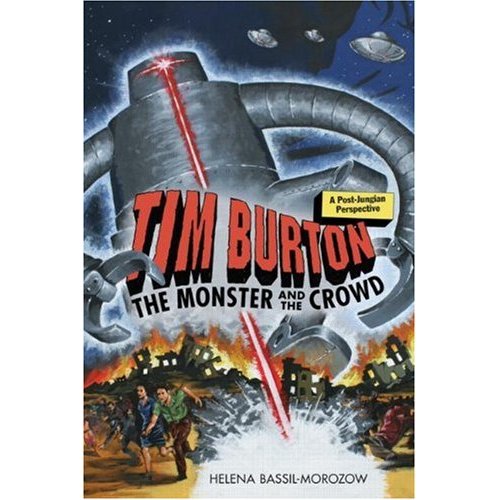 Today I received an email announcement for a conference at the University of Kent and their Centre for the Study of Myth. The conference is titled “Diamonic Imagination: Uncanny Intelligence” to be held in May in Canterbury in the UK. One of the speakers listed in the program caught my eye, Helena Bassil-Morozow with her presentation “Modern Myth and Modern Demons: Tim Burton’s Batman Films.” As I followed the breadcrumbs I discovered that Bassil-Morozow has a book on this topic titled Tim Burton: The Monster and the Crowd (Routledge, 2010).
Today I received an email announcement for a conference at the University of Kent and their Centre for the Study of Myth. The conference is titled “Diamonic Imagination: Uncanny Intelligence” to be held in May in Canterbury in the UK. One of the speakers listed in the program caught my eye, Helena Bassil-Morozow with her presentation “Modern Myth and Modern Demons: Tim Burton’s Batman Films.” As I followed the breadcrumbs I discovered that Bassil-Morozow has a book on this topic titled Tim Burton: The Monster and the Crowd (Routledge, 2010).
The publisher’s website includes the following description for the volume:
Tim Burton’s films are well known for being complex and emotionally powerful. In this book, Helena Bassil-Morozow employs Jungian and post-Jungian concepts of unconscious mental processes along with film semiotics, analysis of narrative devices and cinematic history, to explore the reworking of myth and fairytale in Burton’s gothic fantasy world.
The book explores the idea that Burton’s lonely, rebellious ‘monstrous’ protagonists roam the earth because they are unable to fit into the normalising tendencies of society and become part of ‘the crowd’. Divided into six chapters the book considers the concept of the archetype in various settings focusing on:
* the child
* the superhero
* the monster
* the genius
* the maniac
* the monstrous society.Tim Burton: The Monster and the Crowd offers an entirely fresh perspective on Tim Burton’s works. The book is essential reading for students and scholars of film or Jungian psychology, as well as anyone interested in critical issues in contemporary culture. It will also be of great help to those fans of Tim Burton who have been searching for a profound academic analysis of his works.
If the paper from the upcoming conference draws on other perspectives from the book Bassil-Morozow will also include discussion of Pierre Bourdieu’s concept of habitus (discussed at TheoFantastique in regards to Roger Aden’s thought on the appeal of the fantastic), Clifford Geertz’s theories of culture, and Victor Turner’s idea of liminality. Burton is a director of great interest for me, so I am excited to find a scholar who has explored this director in some depth.





There are no responses yet